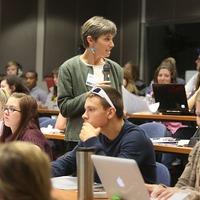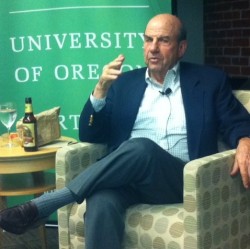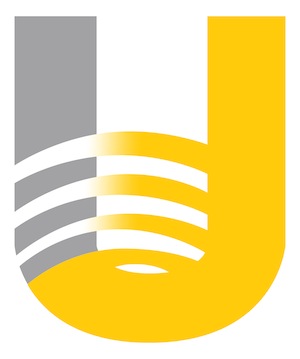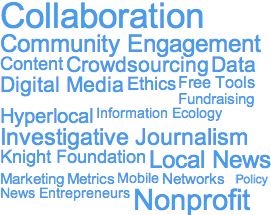The Journalism Accelerator’s (JA’s) blog reports on a broad range of experiments unfolding in the field. Evolving daily, news and community publishers across journalism networks share much common ground, but have unique brands and market challenges. Posting content on the beat of news, we’re excited by the passion of publishers and hope to document some of the creative ways the business of news continues to re-imagine itself. The blog offers a range of feature content, much of it our reporting out to you what we’re learning from our experimentation across the JA. We think of the blog, related resources and featured items as compost that we hope helps fuel experiments, cross pollinating innovation and emerging practices with the wisdom of the field to seed new ideas.
Posted by Jamison Taffel on February 8, 2013
Topics:
Blog Technology

Twitter's API changes in March 2013, are you ready?

Twitter’s API (application programming interface) has become so popular that it’s rare you don’t see a website that has a feed of Twitter content or a way to login using your Twitter account. In August 2012, Twitter announced some upcoming changes to its rules and regulations to foster a more consistent user experience across platforms and devices. The deadline to meet the requirements of API v1.1 is March 5, 2013.
This could affect any website that uses the Twitter API and many third-party apps, such as Hootsuite or Flipboard, who have had to make major adjustments to adhere to Twitter’s new rules.
Even Journalism Accelerator has had to make some changes. Are you ready? (more…)
Posted by Emily Harris on January 30, 2013
Topics:
Blog Community

As the final of our four-part series exploring “Was 2012 the year of prosperity for publishers?” – in this post we explore the value of volunteers, intentional curated conversation and connected collaboration for non-profit media. We hear from Mark Glaser, executive editor of PBS MediaShift and Idea Lab; Dan Moulthrop, curator of conversation at The Civic Commons; and Josh Stearns, public media campaign director at Free Press. The third post in JA’s “what we know now” 2012 series offers specific ideas on building public trust, raising money and a free press powered by the people. The second post in the series reveals practical perspective on local advertising, meeting the needs of communities and customer connection. With 2013 now under way, may the lessons of 2012 help pave the way for greater prosperity in the year ahead! (more…)
Posted by Emily Harris on January 23, 2013
Topics:
Blog Revenue

Was 2012 prosperous for publishers? The four-part series continues, with this third installment offering key lessons from three well-respected practitioners known for thinking outside the box. Mike Fancher, veteran news business strategist; Lila LaHood, director of operations and development at San Francisco Public Press; and Keith Hammonds, director of Ashoka’s Knowledge Initiative, offer their unique perspectives. Fancher sums it up as such: “News businesses – emerging or legacy, large or small – won’t be relevant and economically viable if journalists don’t feel a personal responsibility to make public engagement a core tenet of their work.” LaHood offers insights from the nonprofit trenches: “We learned that we weren’t giving our supporters enough different opportunities to support our brand of local public-interest journalism.” And Hammond sees the opportunity to act as a changemaker is to “produce content that’s relevant; connect it to mechanisms that help citizens and communities make change; articulate a value proposition and (not least) ask to be paid.” See their contributions below for useful context you can compare your experience against. Check back next week as we offer the fourth and final post in this series, with contributions from Josh Stearns of Free Press, Mark Glaser of PBS Media Shift and Dan Moulthrop of The Civic Commons. (more…)
Posted by Emily Harris on January 16, 2013
Topics:
Blog Community

At the Poynter-KSU media ethics conference in 2012, Emily Harris engages students in the conversation. Photographer: Susan Kirkman Zake

In late September 2011, Emily Harris joined the Journalism Accelerator to lead and shape our editorial program. In late 2012, Emily was offered an opportunity to serve as NPR’s Jerusalem correspondent, a challenge she is excited to take on. This post offers Emily’s take on this new opportunity and what new perspectives she’ll bring with her from her time at the JA. The work Emily began here will focus deeper in 2013 on publisher sustainability and peer-to-peer idea exchange to fuel the field, with an announcement in early February of our new lead on editorial to carry forward this critically important work.
Guiding, covering and going deep with publishers, innovators and entrepreneurs exploring new forms of sustainability emerging in the field, Emily has delivered a body of work that lays a foundation for a new kind of living-knowledge base designed around conversation. A knowledge base that synthesizes more than 1,800 comments from practitioners in the field shared on JA, across more than a dozen major forums, scores of direct conversations and on-site facilitation to bring our community practical and proven techniques others have tried, to shorten their path to sustainability. The JA team holds the deepest regard and offers best wishes for Emily as she channels all she has learned from all of you into her work halfway around the world, striving to help make global news relevant to local communities. – Lisa Skube, JA founder and director (more…)
Posted by Emily Harris on January 9, 2013
Topics:
Blog Community

As part of the larger story, the top lessons from a range of perspectives learned over 2012 is a four-part series the JA is running over the month of January. This is the second part of the series and features three thought leaders – Dick O’Hare, CEO & founder of Local Yokel Media; John Garrett, CEO and publisher of Community Impact Newspaper; and Laura Rich, co-founder of Street Fight – offering their insights. Together our initial think group shared a collective sense in early 2012 that publishers could benefit from a roadmap of the many small steps needed to increase and stabilize revenue across the industry. These additional contributors offer the lessons they’ve learned leading and growing successful new companies; all of them launched five years ago or less. (more…)
Posted by Emily Harris on January 2, 2013
Topics:
Blog Revenue

If 2012 was any indication, 2013 holds great promise for new revenue tracks, new partnerships and adapting to best practices to not just serve, but delight, audiences.

In early 2012, just about a year ago, we invited a half-dozen people with a range of unique roles in the news production mix, to identify the most crucial challenges facing publishers at that moment in time. No enormous surprise: Money was the top concern. More specifically, a collective sense emerged that publishers could benefit from a roadmap of the many small steps needed to increase and stabilize revenue across the industry.
As 2012 drew to a close, we once more turned to these insightful people (listed to the right), asking each to share what he or she learned over the course of this chapter in the evolving story of journalism. We also asked a number of other leaders across the industry to share what they learned in 2012. You’ll see excerpts in this post, with their full stories offered as a series that will post over the month of January.
(more…)
Posted by Matt Tiffany on December 19, 2012
Topics:
Blog Craft

Writer Calvin Trillin visiting the University of Oregon

The evolution of news media means journalists can tell stories many ways quickly: through tweets, posts, live chats, short video takes or breaking-news blogging that’s refreshed by the minute.
But with the advent of 140-character updates, the future of 3,000-word long-form stories is uncertain.
Last week, the JA listened in as Calvin Trillin, a modern master of long-form narrative nonfiction, spoke with journalism professionals, students and scholars from nearby universities at the University of Oregon’s Turnbull Center in Portland.
Moderated by author and professor Lauren Kessler, the conversation held gems for journalists and publishers looking to keep a place for deeply told stories in our fast-take, short-form world. (more…)
Posted by Emily Harris on December 14, 2012
Topics:
Blog Education


Doug Mitchell brings ideas to angels. He is co-director of the UNITY New U Entrepreneur Fellowship program. Funded by the Ford Foundation, the program aims to help minority journalists get the business training, support and connections they need to launch businesses. The initiative offers $10,000 grants, training and mentorships.
Last year, New U launched a new partnership with the National Minority Angel Network to provide fellows further mentoring and pitch opportunities.
The JA’s Emily Harris talked with Doug about the business landscape minority journalists face, the particulars of this journalism business training program and how to get involved in 2013. The interview has been edited for clarity and length. (more…)
Posted by Emily Harris on December 5, 2012
Topics:
Blog Craft
 Investigative Reporters and Editors teamed up with the Sunlight Foundation to create a guide to key national economic databases as a tool to fact-check political claims. Designed for journalists on deadline, useful and accessible to interested citizens, EconoCheck hopes to expand this service built initially for the 2012 election.
Investigative Reporters and Editors teamed up with the Sunlight Foundation to create a guide to key national economic databases as a tool to fact-check political claims. Designed for journalists on deadline, useful and accessible to interested citizens, EconoCheck hopes to expand this service built initially for the 2012 election.

EconoCheck is a collection of economic data covering major issues frequently in the news. It’s designed to give reporters a quick way to understand the context of the data and a direct link to the datasets themselves.
EconoCheck was built with a simple premise: It can be challenging to verify economic claims. So the Sunlight Foundation teamed up with Investigative Reporters and Editors to offer direct links and helpful context to extract accurate information from key national economic datasets.
Data expert and journo prof David Herzog collaborated with Sunlight and IRE to launch EconoCheck for the 2012 election.
In the latest JA Resource Q&A, we talked with Herzog about how to report data effectively and how this tool can be useful outside the immediate demands of an election cycle. (more…)
Posted by Emily Harris on November 29, 2012
Topics:
Blog Education

A section of the tag cloud from JA's resource index, offering a quick way to source information you need.

Today’s news market finds many publishers overwhelmed by information, tools and apps, with few ways to learn which may hold the most value, be simple to use or bring your business the greatest return. To help news providers search more efficiently across information networks, the JA curates resources with practical value or proven success.
Organized in an easy-access index, this resource collection is designed to help journalists, publishers and others who are looking to find new, sustainable ways to do business. Since launching 15 months ago, the collection has grown to more than 300 listings pulled from scores of sources. Here we offer a quick tour of what you can expect to find in a JA resource listing, explaining how we select and present resources so you can get the most out of them. (more…)















